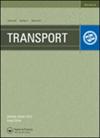道路基础设施要素性能中断对相关子系统的负面影响:方法框架
IF 1.3
4区 工程技术
Q3 TRANSPORTATION SCIENCE & TECHNOLOGY
引用次数: 2
摘要
关键基础设施系统由国家运作所必需的子系统(如能源、交通和应急服务)决定。这些子系统功能的中断将对国家安全、国家经济和居民基本需求的供应产生严重影响。链接连接这些子系统(即,扇区、子扇区和元素),并且这些链接确保某些子系统相互集成。它们的相互作用来源于相互联系的类型和强度。因此,相互关联的子系统可以分为影响子系统和依赖子系统。上述关键基础设施系统中的相互联系允许,除其他外,破坏性事件的影响通过级联效应在子系统之间传播。影响子系统性能的中断可能会对依赖子系统产生负面影响,从而导致关键基础设施系统中级联效应的扩散。这种影响通常很难预测,从而降低了相关子系统的响应性。道路运输是影响关键基础设施子系统的最重要因素之一。出于这个原因,本文着重于指出道路基础设施要素中断对相关子系统的负面影响。本文描述了道路基础设施在关键基础设施系统中的作用。定义道路基础设施的依赖子系统,对负面影响进行分类,并提出一种可能的方法来评估道路基础设施性能中断对依赖子系统的不利影响。本文章由计算机程序翻译,如有差异,请以英文原文为准。
NEGATIVE IMPACTS FROM DISRUPTION OF ROAD INFRASTRUCTURE ELEMENT PERFORMANCE ON DEPENDENT SUBSYSTEMS: METHODOLOGICAL FRAMEWORK
The critical infrastructure system is determined by subsystems essential for the functioning of the state (such as energy, transport, and emergency services). Disruption to the function of these subsystems would have serious effects on state security, the state economy, and the provisioning of the inhabitants’ basic human needs. Links connect these subsystems (i.e., sectors, subsectors, and elements), and these links ensure that certain subsystems are integrated into each other. Their interactions are derived from the type and intensity of the mutual link. The interlinked subsystems can thus be divided into influencing and dependent ones. The aforementioned mutual links in the critical infrastructure system allow, amongst other things, the spread of impacts of disruptive events amongst the subsystems via cascading effects. Disruptions to the performance of an influencing subsystem may have negative effects on a dependent subsystem, resulting in the spread of cascading effects in the critical infrastructure system. Such effects are often difficult to predict, which reduces the responsiveness of the dependent subsystems. Road transport is one of the most significant influences on critical infrastructure subsystems. For this reason, the article focuses on an indication of the negative effects of disruption of road infrastructure elements on dependent subsystems. The article describes the role of road infrastructure in the context of the critical infrastructure system. Defines the dependent subsystems of road infrastructure, categorises the negative effects, and presents a possible approach to assessing the adverse effects of disruption road infrastructure performance on dependent subsystems.
求助全文
通过发布文献求助,成功后即可免费获取论文全文。
去求助
来源期刊

Transport
Engineering-Mechanical Engineering
CiteScore
3.40
自引率
5.90%
发文量
19
审稿时长
4 months
期刊介绍:
At present, transport is one of the key branches playing a crucial role in the development of economy. Reliable and properly organized transport services are required for a professional performance of industry, construction and agriculture. The public mood and efficiency of work also largely depend on the valuable functions of a carefully chosen transport system. A steady increase in transportation is accompanied by growing demands for a higher quality of transport services and optimum efficiency of transport performance. Currently, joint efforts taken by the transport experts and governing institutions of the country are required to develop and enhance the performance of the national transport system conducting theoretical and empirical research.
TRANSPORT is an international peer-reviewed journal covering main aspects of transport and providing a source of information for the engineer and the applied scientist.
The journal TRANSPORT publishes articles in the fields of:
transport policy;
fundamentals of the transport system;
technology for carrying passengers and freight using road, railway, inland waterways, sea and air transport;
technology for multimodal transportation and logistics;
loading technology;
roads, railways;
airports, ports, transport terminals;
traffic safety and environment protection;
design, manufacture and exploitation of motor vehicles;
pipeline transport;
transport energetics;
fuels, lubricants and maintenance materials;
teamwork of customs and transport;
transport information technologies;
transport economics and management;
transport standards;
transport educology and history, etc.
 求助内容:
求助内容: 应助结果提醒方式:
应助结果提醒方式:


